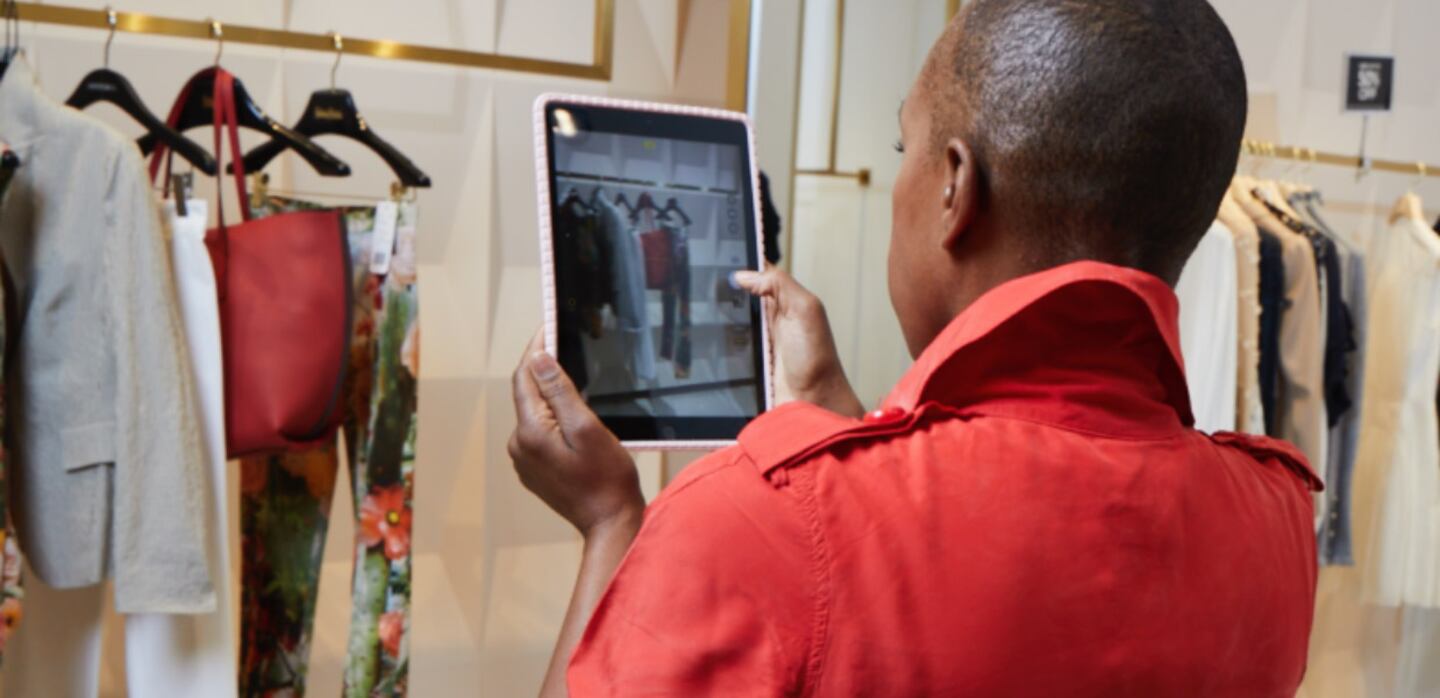
The Business of Fashion
Agenda-setting intelligence, analysis and advice for the global fashion community.

Agenda-setting intelligence, analysis and advice for the global fashion community.

Two years into the pandemic, remote work has become the norm for millions of people in industries from health care to education and real estate. Now, retail store associates are eager to join the revolution — and their employers are scrambling to make it a viable option.
Faced with persistent labour shortages, fashion firms have had to rethink their strategies for hiring and retaining workers. But despite the fast adoption of remote work and flex schedules for corporate employees, it hasn’t been an obvious fit for sales associates and other store workers.
That’s starting to change. New technologies, including the growing use of social media and livestreaming to sell clothes from stores, are helping some retailers lay the groundwork for associates to work virtually.
For instance, in the past two years, both Nordstrom and Neiman Marcus have launched apps that allow their sellers to send messages to customers, share product recommendations and complete their purchases. The department stores say these tools are laying the groundwork for salespeople to have greater freedom to work at the location and time of their choosing.
ADVERTISEMENT
Some fashion firms are more primed than others to experiment with virtual tools and graduate their store workers into advanced professional duties like running a livestream or communicating with customers via email and apps. For instance, high-end department stores have always catered to clients who expect a certain level of service from salespeople — and they’ve staffed their stores accordingly.
“We look for people who want to drive their own business, we aren’t looking for someone who’s just nice and can ring someone up at a register,” said Jessica Cloutier, Nordstrom’s senior director of styling and sales.
Laying the Foundation
The department store apps proved their worth during the pandemic’s early days when they allowed some sales associates to avoid furloughs and connect with consumers online.
Neiman Marcus employee Nancy Rogers Ray spent the first three months of the pandemic working on a company-provided cell phone from her home, using a proprietary virtual selling app, Connect, to share product recommendations and styling tips and complete purchase transactions. She also used her personal Instagram account to post about new products and invite potential customers to message her or “text to shop.”
“It’s a lot of connecting with clients through different creative ways,” said Ray.
With widespread adoption still a ways away, store associates most often use remote selling apps from their brick-and-mortar stores themselves. Even Ray now works in-store most days but continues to use virtual selling “tools” to have more flexibility.
At Neiman Marcus, some stores have been redesigned with “terminals” and other built-out spaces in the backroom where associates use tablets and cell phones to video chat with customers, host styling sessions and even execute sales transactions without stepping foot on a sales floor, said Bob Kupbens, chief product and technology officer at Neiman Marcus Group.
ADVERTISEMENT
“Right now, it’s less overt when it comes to [an associate spending] an hour in a store versus an hour somewhere else,” he said. “It’s more … what does it take for you to provide the service to your customers as well as the stores having the coverage that we need?”
In commission-based sales roles, the current stream of new technologies could help associates earn more money for the same amount of time on the clock. During huge sales driver events, such as Nordstrom’s Anniversary Sale, store associates could earn commission from multiple transactions at the same time if they’re crafty about how they use the company’s apps, said Cloutier.
“They’re able to send out their product recommendations to their clients who may end up making the purchase at 2 a.m.; the employee wakes up to sales [and commission] that happened overnight,” she said.
Retailers are also increasingly experimenting with livestreaming. Popular in China, it’s nascent but growing in the US: Coresight data estimates that sales grew to $11 billion in 2021 and will grow to $26 billion by 2023.
Retailers are testing out having their store employees livestream from remote locations to thousands of customers globally, said Ken Fenyo, president of research & advisory at Coresight Research, a consultancy specialising in retail and technology. On the landing page for certain products on its e-commerce site, Nordstrom features videos of sales associates describing the feel and fit of a garment, even offering styling advice.
Beyond livestreaming on its store-owned platforms, retailers are also encouraging associates to embrace an influencer mindset. Neiman Marcus is piloting a program to formalise the social media content processes for style advisors and “amplify [their] voices more broadly in front of customers and across the teams,” said Kupbens. The hope is to help sellers like Ray leverage the brand’s cache to build up their social media clout and become content creators in their own right.
Opportunities like these help professionalise the sales associate role and are also a bridge to eventually allowing these employees to work remotely, said Fenyo.
What Happens Next
ADVERTISEMENT
Even as some retailers experiment with remote work for sales associates, complicated challenges around compensation, scheduling and company-specific needs mean the industry still has a ways to go before it’s a widespread reality, said Craig Rowley, a partner at Korn Ferry.
“Retailers have to figure out how to make sure they’re paying people for the hours they work because every state has overtime laws,” he said. “If they’re going to have people working remotely, how do we make sure they’re working the hours that are most effective?”
Salespeople like Ray that are doing most of their virtual work in a store environment also have access to a full merchandise assortment, management personnel and the most up-to-date tech tools. If store associates were to be 100 percent remote or even hybrid, it could create technical hurdles for efficiency and productivity, said Rowley.
And if retailers were to formally require store associates to livestream and post on social media, they may need to update their compensation packages accordingly, and include affiliate fees, said Fenyo. They will also need to invest in teaching workers to take on these tasks.
Mass sellers like Target and Walmart have already been reducing the number of associates carrying out certain duties in stores and leaning on self-checkout and other e-commerce platforms. But their ability to adopt remote work for store sales staff will hinge greatly on the level of human support (in person or virtually) their shoppers need to purchase items like toothpaste or toilet paper in the first place, experts say.
Fashion purveyors that sell typically pricier, non-essential merchandise have a more critical burden when it comes to striking the right balance between virtual and in-person experiences that serve both employees and consumers.
“We’re certainly going through a period when retailers are reducing their store footprints as sales move online and consumer behaviour shifts,” said Fenyo. “That means that there’ll be much more opportunities for remote work … but people are still going to want some kind of retail experience where they can come touch and feel products.”
 Opens in new window
Opens in new windowEmployee demands for unconventional schedules are here to stay and companies will need to think outside the box to make them work.
As companies from Macy’s to Target scramble to hire thousands of workers for a holiday shopping boom, they’ll need to figure out how to strike the right balance between pay and perks.
Many countries are racing to reopen, but plenty of fashion brands and retailers are telling workers they can stay home forever.

Sheena Butler-Young is Senior Correspondent at The Business of Fashion. She is based in New York and covers workplace, talent and issues surrounding diversity and inclusion.
To provide actionable insights and inspiration on how fashion and retail industries can further embed diversity, equity and inclusion in the workplace and business strategies today, BoF Careers co-hosted a panel discussion with The Outsiders Perspective. Now, BoF shares key learnings from the panel.
Discover the most exciting career opportunities now available on BoF Careers — including jobs from Tapestry, Alexander McQueen and Toteme.
A US regulator has banned most uses of the clauses, which started as a way for fashion companies to prevent senior executives from walking off with trade secrets, but have become a standard retention tool.
Check out this week’s new partners and openings on BoF Careers, the global marketplace for fashion talent.